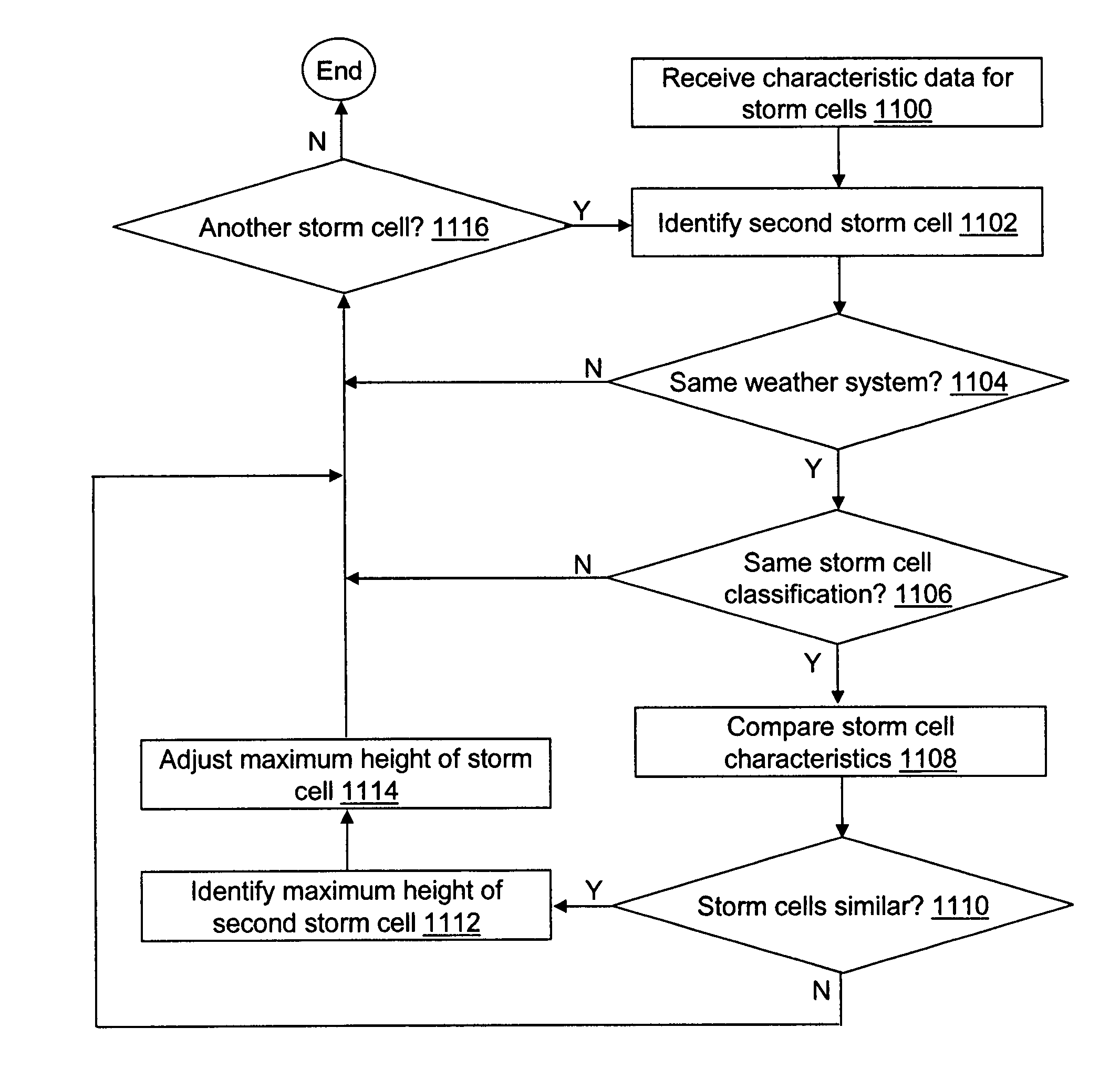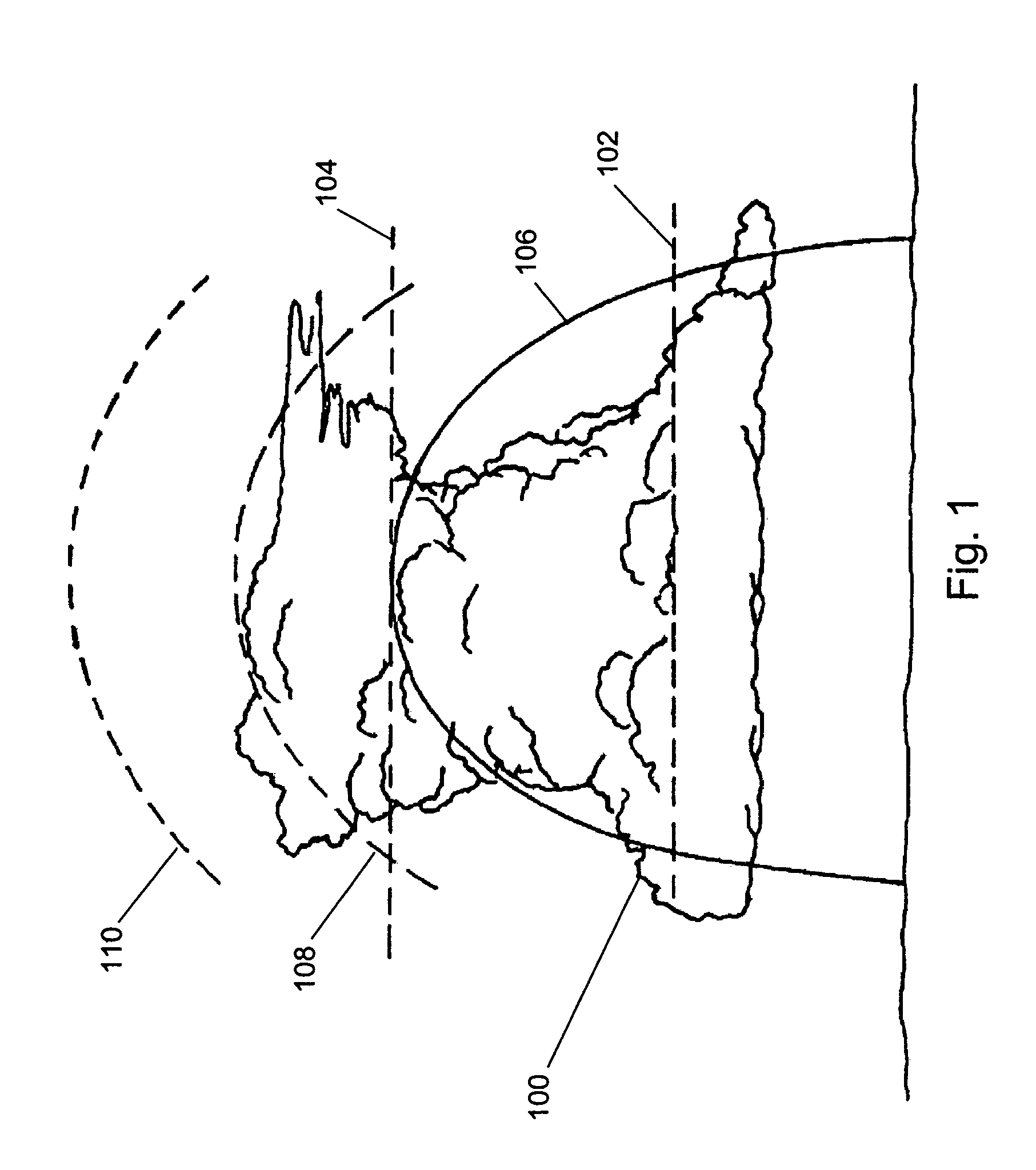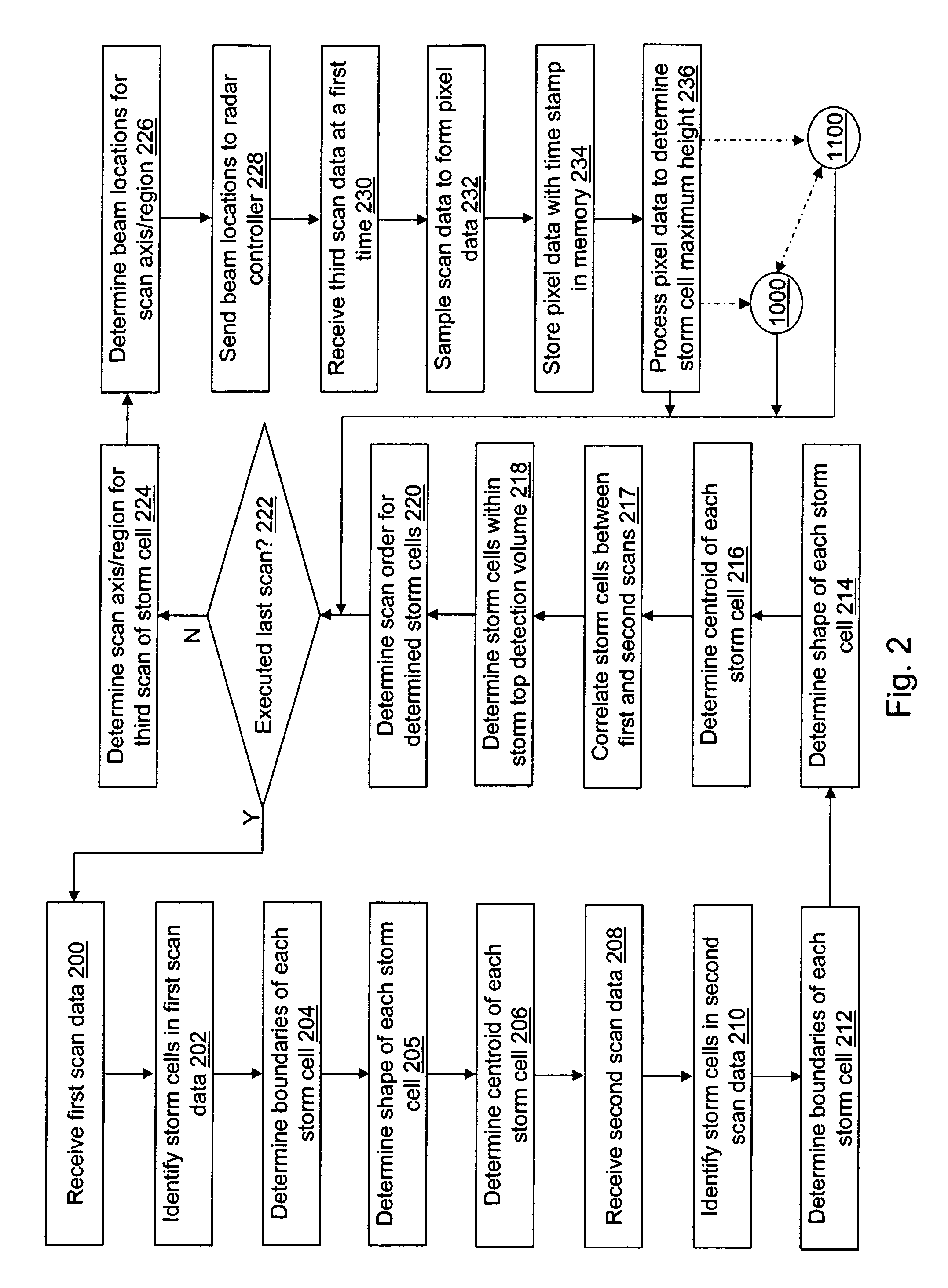Storm top detection and prediction
a detection and prediction technology, applied in direction finders using radio waves, instruments, reradiation, etc., can solve the problems of aircraft passengers and cabin crews being injured in flight, difficult to detect with radar, and storm tops being hazards to aircraft, etc., to achieve efficient detection of a maximum height
- Summary
- Abstract
- Description
- Claims
- Application Information
AI Technical Summary
Benefits of technology
Problems solved by technology
Method used
Image
Examples
Embodiment Construction
[0023]With reference to FIG. 1, a diagram illustrating the spatial distribution of a typical thunderstorm 100 is shown. The portion of thunderstorm 100 below a first altitude 102 contains water in liquid form. The portion of thunderstorm 100 below a second altitude 104 and above first altitude 102 contains a mixture of ice and water in liquid form. The portion of thunderstorm 100 above second altitude 104 contains only ice. Most of the reflectivity of a storm originates from the moisture that it contains and often the top of the storm is significantly higher than the moisture based radar reflectivity indicates. As a result, based on the geometry of thunderstorm 100, regions may be defined by their ability to be detected by radar, their visibility to a pilot, and their effect on an aircraft. Region 106, which includes the liquid water and the mixed ice and water portions of thunderstorm 100, is a region that is detectable by an aircraft radar system, due to the high and moderate rada...
PUM
 Login to View More
Login to View More Abstract
Description
Claims
Application Information
 Login to View More
Login to View More - R&D
- Intellectual Property
- Life Sciences
- Materials
- Tech Scout
- Unparalleled Data Quality
- Higher Quality Content
- 60% Fewer Hallucinations
Browse by: Latest US Patents, China's latest patents, Technical Efficacy Thesaurus, Application Domain, Technology Topic, Popular Technical Reports.
© 2025 PatSnap. All rights reserved.Legal|Privacy policy|Modern Slavery Act Transparency Statement|Sitemap|About US| Contact US: help@patsnap.com



